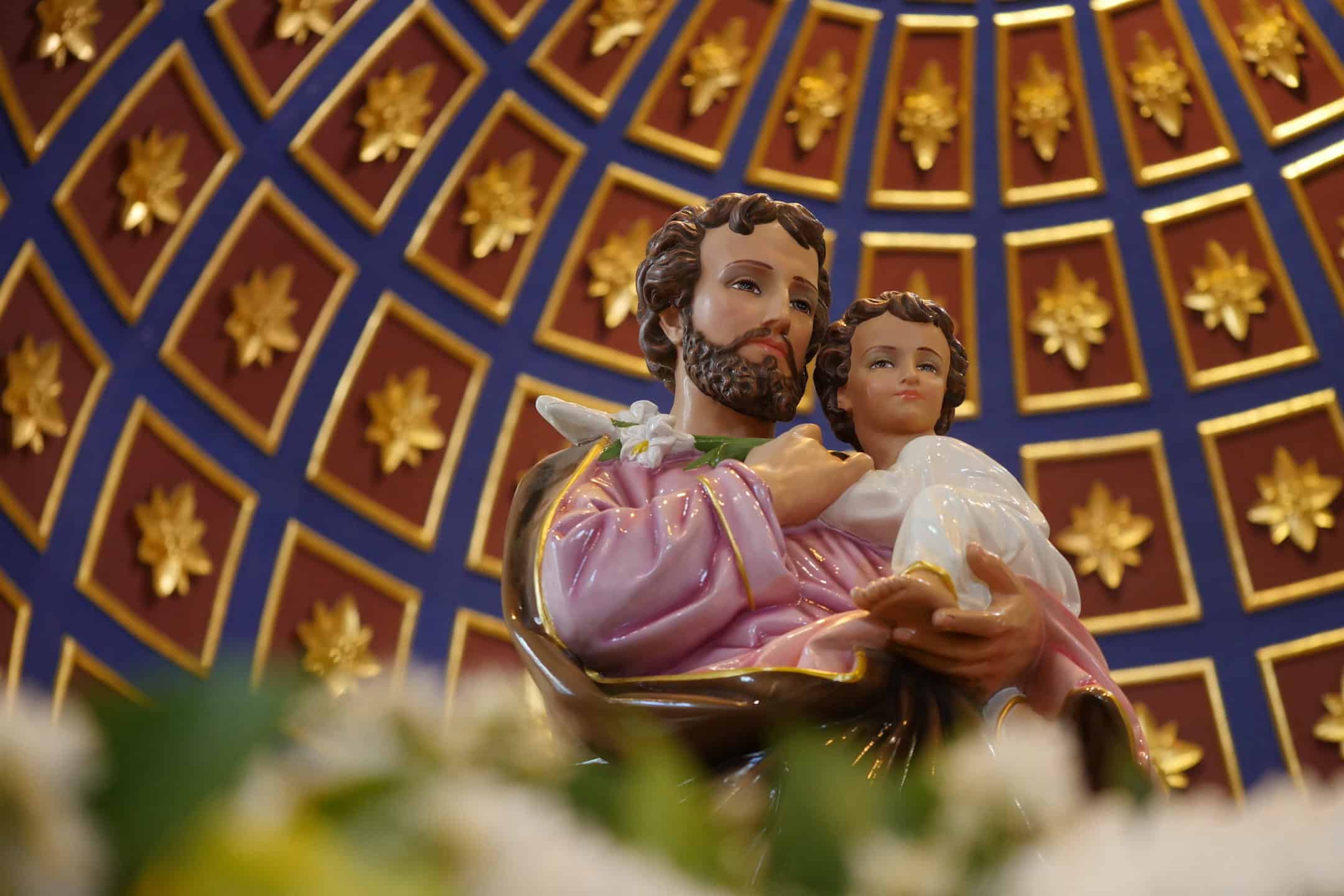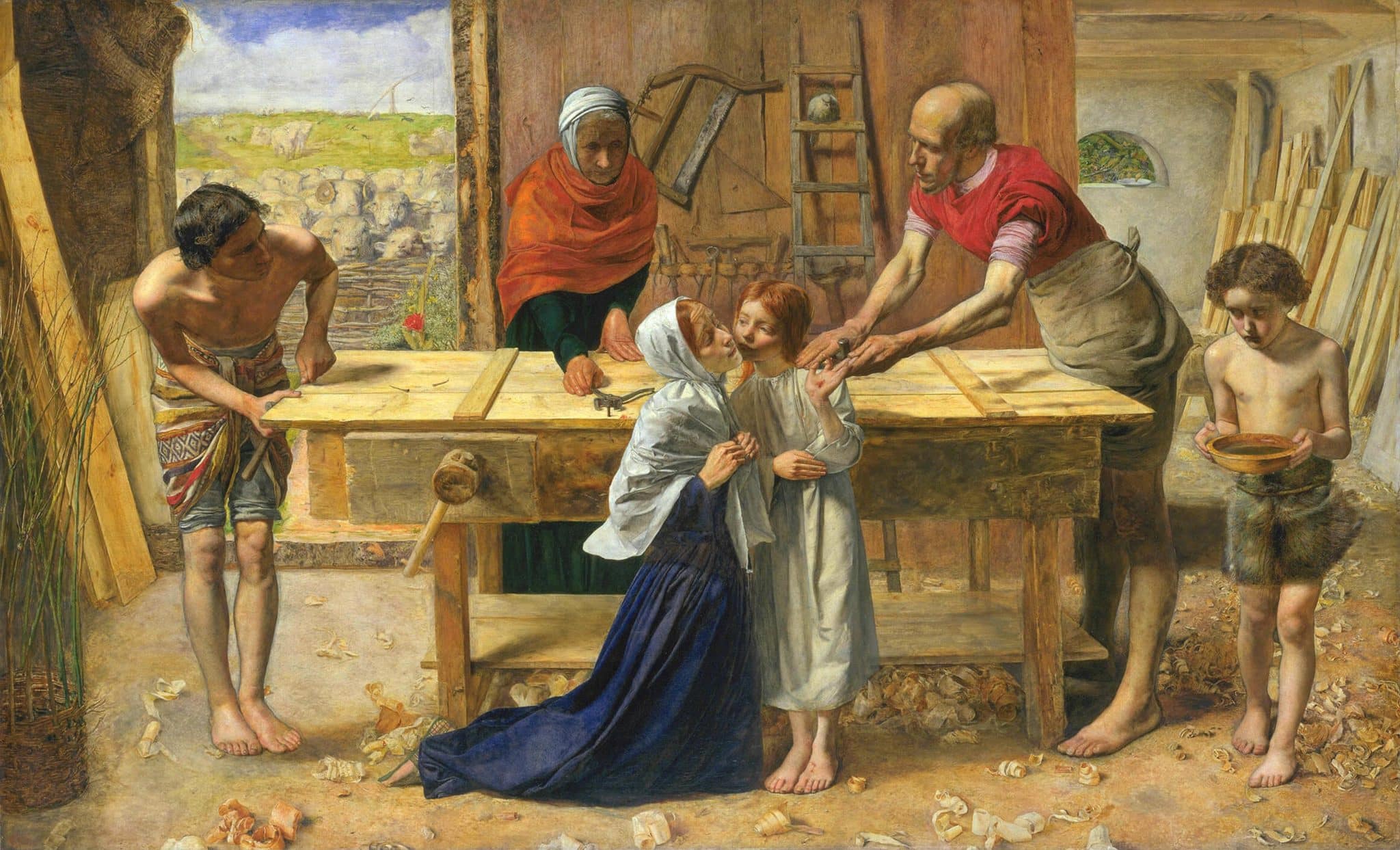“In the workshop of Joseph of Nazareth, we find a model for living in the new creation, working beside Jesus, crafting a better world.”
 Reflection by Mike Aquilina
Reflection by Mike Aquilina
Joseph was known for his work. Even after his death he was called “the carpenter,” as if it was his name (Mark 6:3). His work was a badge of honor. In his native Jewish culture, manual labor was held in high esteem. Israel’s heroes had been workers. Abel was a herdsman. Noah was a mariner. Jacob was a farmer. They were not philosophers or aristocrats; but they were considered to be great.
This respect for hard work was unique in the ancient world. Socrates and Aristotle had contempt for manual labor. They believed it rendered a person unfit for citizenship. The Greek historian Herodotus wrote that such scorn was almost universal in those centuries before Christ.
In all the world, the Jews were the only exception. Judea was the one place a carpenter like Joseph could stand out as a paragon of righteousness (Matthew 1:19).
Joseph’s son, Jesus, followed his father into the trade — and, in doing so, he sanctified all human labor, making it something even greater than it had been. He made it divine.
In the workshop of Joseph of Nazareth, we find a model for living in the new creation, working beside Jesus, crafting a better world.
“As a builder, St. Joseph was godlike. But that divine quality would have been his if he had practiced any other honest trade. Work is part of our basic human vocation and identity; and St. Joseph knew this not because of an angel’s message, but because he knew Scripture.”



